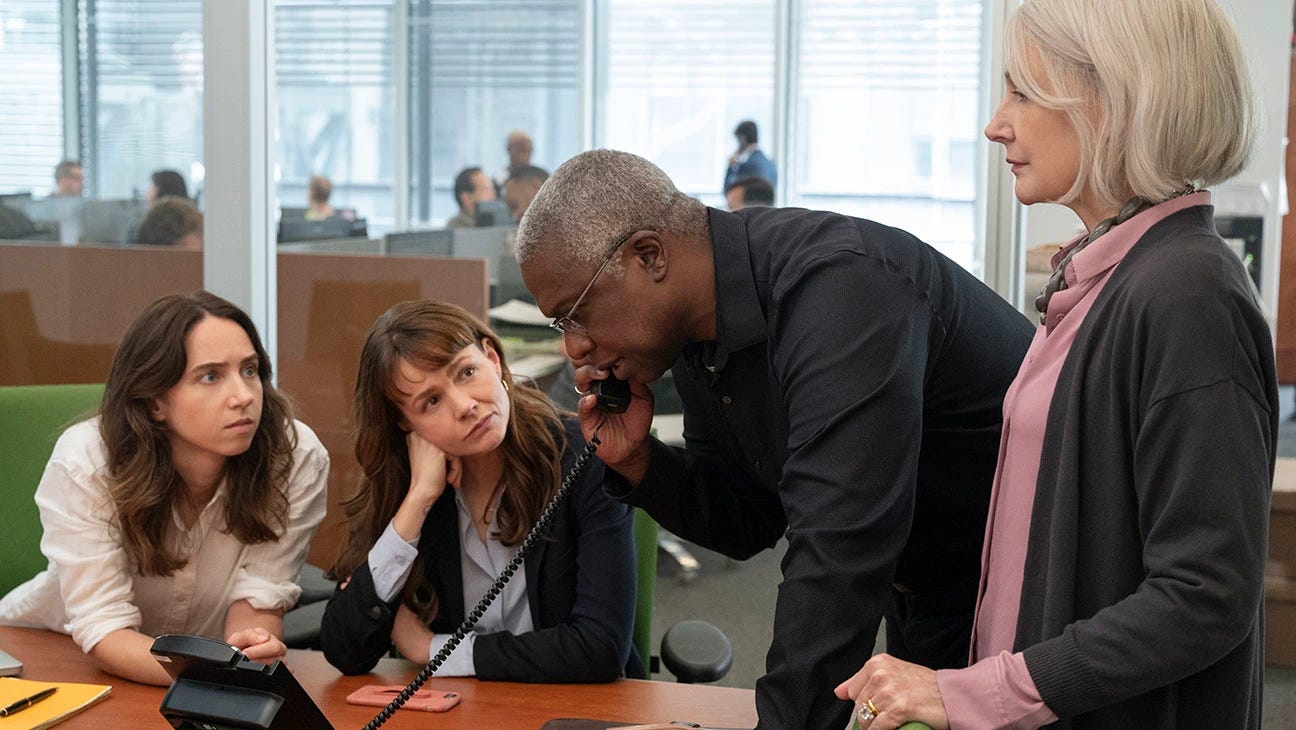She Said
She Said, directed by Maria Schrader, is the story of the two New York Times reporters who in 2017 broke the story of movie producer Harvey Weinstein’s sexual misconduct. Megan Twohey (Carey Mulligan) and Jodi Kantor (Zoe Kazan) based their reporting on interviews with well-known actresses – Ashley Judd, whose decision to go public about Weinstein’s behavior lends an additional layer of credibility to the story, makes a moving appearance as herself – as well as Weinstein’s former employees. Twohey and Kantor expanded their story into a successful book also called She Said, and the movie has enough space to depict how the story affected the two reporters’ personal lives. Twohey, who reported on accusations against Donald Trump during the 2016 Presidential campaign, struggled with a period of postpartum depression before joining Kantor on the Weinstein story. Carey Mulligan is quite good in these early scenes, giving Twohey notes of a deep sadness that subsequently drives her reporting as the Weinstein story deepens. Later on, new information emerges regarding settlements Weinstein paid to avoid lawsuits, and Twohey reveals herself as being adept at schmoozing with Weinstein’s fixer Lanny Davis (Peter Friedman) to get information. The scenes involving Lanny Davis are the moments when She Said sags the most, since the screenplay by Rebecca Lenkiewicz doesn’t do a good job of explaining why Davis says certain things and not others.
There is a sense in which She Said is a movie about people doing their jobs well and yet also of course the story of women abused by a powerful man. The scenes of Twohey and Kantor interviewing people and talking things over with their editors (Andre Braugher and Patricia Clarkson) are presented exactly as the New York Times might wish them to be, with all of the journalists displaying a seriousness and rectitude about the accuracy of their reporting. Braugher, as executive editor Dean Baquet, is especially good at a kind of quiet and dignified urgency. When Kantor interviews former female Weinstein employees about his behavior, the horrors they experienced are filtered in flashback through Schrader’s restraint. Shots of clothes strewn on a floor or of a running shower are meant to suggest Weinstein’s hotel room assaults of women who feared for their safety and their careers. Schrader has cast actors more than up to the challenge of playing these emotionally grueling scenes, with Samantha Morton almost burning a hole in the movie with her story of what the experience with Weinstein did to her character’s career. Morton’s scene, which takes place in a quiet restaurant, requires a sense of long-simmering rage that she locates just under her character’s reserve. It’s a stunning little bit of acting just about matched by Jennifer Ehle and Angela Yeoh playing former employees with their own harrowing stories of Weinstein’s assaults.
As moving and vital as She Said Intermittently is and always wants to be, it is still a movie about process. Harvey Weinstein is only portrayed as a voice on a phone or – in one sequence – a man seen only from behind, and his blustering denials of the initial accusations barely ruffle the institutional cool of the Times reporters. There are no last-minute changes of story or doubts about the authenticity of documents, only scenes of journalistic thoroughness and self-reflection. Of course, that’s what happened, and yet the movie rolls to a stop when it could open out into the broader impacts of Twohey and Kantor’s reporting. The strength of its cast helps She Said be more than just an ad for good journalism.

